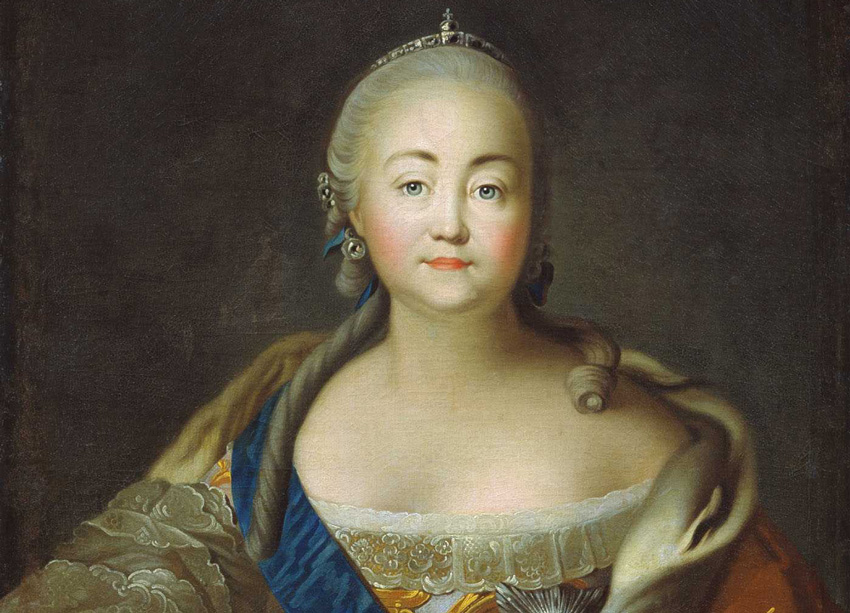
24 May Elizabeth I Of Russia
Elizabeth I of Russia was born in 1709 to Tsar Peter I, whom we know as Peter the Great, and his plebeian consort, Martha Skavronskaya, before their marriage. She inherited her father’s large frame and dark, striking looks, also his charisma and ability to influence people. She grew up in Saint Petersburg in the splendor of her father’s court, amidst the exhilarating progress and strife of Tsar Peter’s fast-paced, radical reforms of Russian society.
She took her first lovers in her teens, behavior unremarkable in Tsar Peter’s court—a place of splendor and squalor, lavish parties with incredible levels of alcohol consumption and depraved carousal, and dangerous liaisons abounding. Tsar Peter tried repeatedly to marry Elizabeth off to princes and potentates. Perhaps enjoying her life exactly as it was, she refused all offers. Desperate for a male heir, Tsar Peter passed over both his daughters as potential successors.
Thus, after Tsar Peter’s death, Elizabeth had to wait out the reigns of her mother, who took the crown as Empress Catherine I; her nephew, Peter II; and her cousin, Anna Ivanovna. Meanwhile she forged friendships within the palace guard, the powerful Preobrazhensky Regiment, and the soldiers and their commanders were ready to serve her when the time came. She decided it had come in 1741, when the succession passed to an infant who would have become Ivan VI if she had let it happen. Instead she presented herself at the regimental headquarters in armor and asked the soldiers whom they wanted to serve—herself, the natural sovereign, or yet another usurper. A bloodless coup in her favor followed.
Her rule had mixed results; she had not been educated in politics and economics. More merciful than her father, though, she abolished the death penalty. She kept taking lovers. The best-known were Alexei Shubin, a page; Semyon Naryshkin, her cousin; General Alexander Buturlin; and Ivan Shuvalov. There was also Alexei Razumovsky, whom she might have married. She would have had to conceal such a marriage because of the young man’s low birth—she bestowed the title of count upon him, but her courtiers knew him quite well from his time as an entertainer, a singer in the imperial household. She liked to cross-dress for fun and threw wild parties, which some termed orgies, but she also wore men’s riding clothes and rode astride. Undoubtedly, she had fun.



